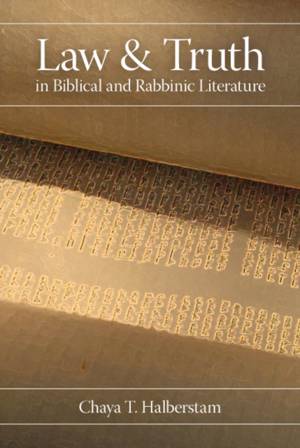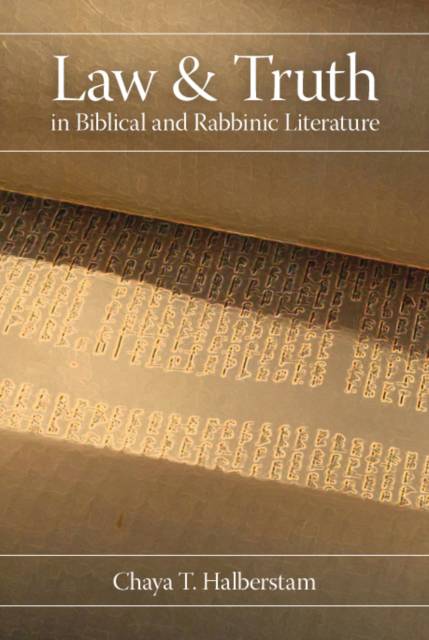
- Retrait gratuit dans votre magasin Club
- 7.000.000 titres dans notre catalogue
- Payer en toute sécurité
- Toujours un magasin près de chez vous
- Retrait gratuit dans votre magasin Club
- 7.000.000 titres dans notre catalogue
- Payer en toute sécurité
- Toujours un magasin près de chez vous
Description
How can humans ever attain the knowledge required to administer and implement divine law and render perfect justice in this world? Contrary to the belief that religious law is infallible, Chaya T. Halberstam shows that early rabbinic jurisprudence is characterized by fundamental uncertainty. She argues that while the Hebrew Bible created a sense of confidence and transparency before the law, the rabbis complicated the paths to knowledge and undermined the stability of personal status and ownership, and notions of guilt or innocence. Examining the facts of legal judgments through midrashic discussions of the law and evidence, Halberstam discovers that rabbinic understandings of the law were riddled with doubt and challenged the possibility of true justice. This book thoroughly engages law, narrative, and theology to explicate rabbinic legal authority and its limits.
Spécifications
Parties prenantes
- Auteur(s) :
- Editeur:
Contenu
- Nombre de pages :
- 240
- Langue:
- Anglais
Caractéristiques
- EAN:
- 9780253354112
- Date de parution :
- 26-01-10
- Format:
- Livre relié
- Format numérique:
- Ongenaaid / garenloos gebonden
- Dimensions :
- 160 mm x 236 mm
- Poids :
- 476 g







